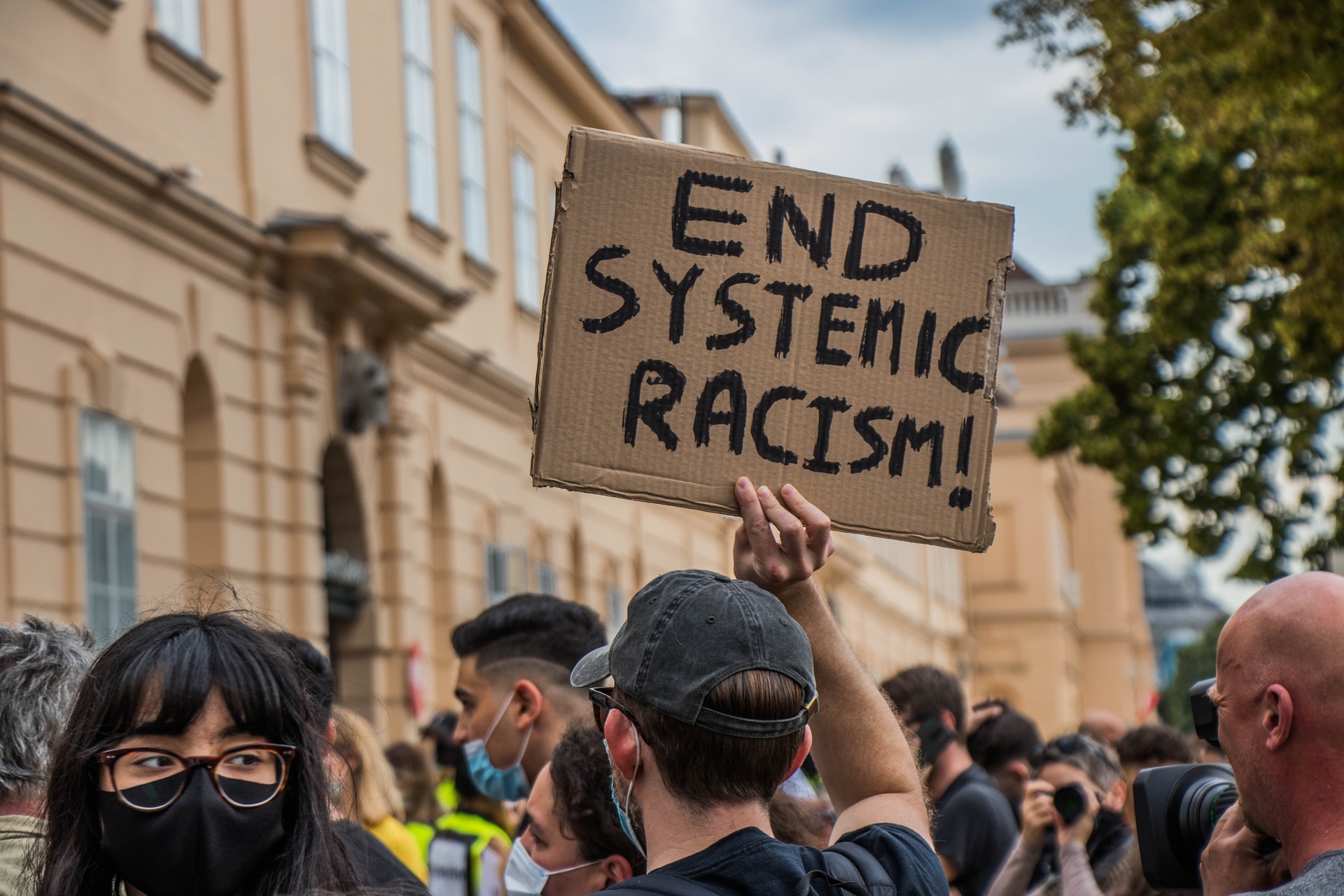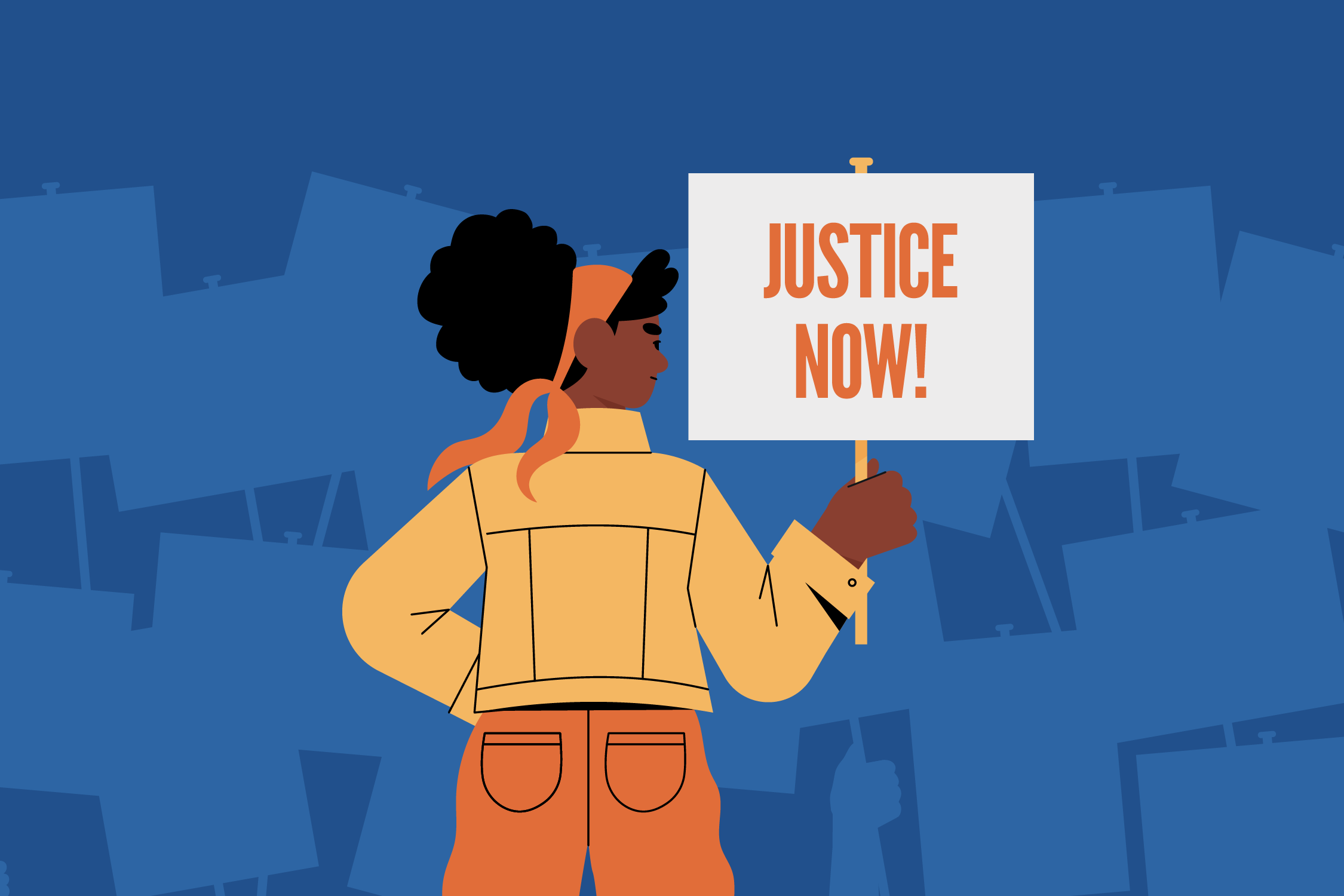
With its complex history, racism is oftentimes taught to others on a linear scale. The truth is, racism accepts many forms. Though not always communicated, racial inequality percolates at larger levels than between individuals. Racism reaches beyond one simple ideology, affecting society in harmful ways. Read on to explore different types of racism.
What is Racism?
Classic racism is often associated with power and white–specific power structures. Our previous blog post expands on the importance of fairness for all: “Working toward racial equity is one of the main pathways to achieving racial justice, which is the systematic fair treatment of people of all races that results in all people—regardless of their race, ethnicity or the community in which they live—having equal access to opportunities.”
The American Psychological Association explains racism as something that’s “structural, institutional, interpersonal and internalized.” Fair healthcare and job opportunities benefit everyone, yet these are areas where racism is present.
This Health Affairs study focuses on the pandemic as a recent example: “Members of racial and ethnic minority groups have long suffered from health inequities in the United States, and the COVID-19 pandemic has mercilessly worsened many of these inequities. As of November 2021, American Indian and Alaska Native, Black and Latino people all had suffered from higher rates of hospitalizations and deaths related to COVID-19 compared with White people.”
What Are the 4 Levels of Racism?
Internalized or Personal Racism
If you’re wondering “what is individual racism,” it’s a pattern that encompasses a person’s private beliefs, prejudices and ideas. Vanderbilt University describes personal racism as “the biased response that occurs when individuals interact with others that are considered racially different than themselves.” Examples of individual racism include microaggressions, which are verbal slights that convey hostility based on stigmas of cultural groups and can be intentional or unintentional.
Interpersonal Racism
The definition of interpersonal racism is the expression of racism on an individual level, primarily through interactions between individuals. Common examples of interpersonal racism include bullying, verbal harassment and negative personal thoughts about race. Interpersonal racism is described by Grand Rapids Community College as “what white people do to people of color up close–the racist jokes, the stereotypes, the beatings and harassment, the threats.”
Institutional Racism
The world continues to grow and evolve, yet racist policies and processes are deeply rooted in America’s history. The American Academy of Family Physicians explains racial inequality as it applies to healthcare: “Hospitals and clinics, which were once designated for racial and ethnic minorities, continue to experience significant financial constraints and are often under-resourced and improperly staffed. These issues result in inequities in access to and quality of healthcare and are major contributors to racial and ethnic health disparities. While segregation and discrimination based on race and ethnicity is no longer legal today, some organizations continue to discriminate based on insurance status, which also disproportionately impacts non-white populations.”
Gaps in mental health services exist across the country, proving to be a large barrier. Mental Health America states, “Racism is a mental health issue because racism causes trauma. And trauma paints a direct line to mental illnesses, which need to be taken seriously.
SingleCare’s mission is to help improve people’s lives in the National Capital Area by providing access to affordable prescription medications. Absolutely everyone is eligible and can benefit from SingleCare.
Structural Racism
Structural racism is defined by Cambridge Dictionary as “laws, rules or official policies in a society that result in and support a continued unfair advantage to some people and unfair or harmful treatment of others based on race.” Examples of behaviors include xenophobia, internalized oppression and white privilege.
Implicit Bias vs Explicit Bias
Racism encompasses both explicit and implicit forms of bias and discrimination.
What is Implicit Bias?
Implicit bias is the unconscious preferences that people hold towards certain groups of people. These biases are not consciously chosen, but they can still influence perceptions, judgments and behaviors.
What is Explicit Bias?
Explicit racism refers to conscious acts of discrimination, such as using racial slurs, engaging in hate speech or openly advocating for the superiority or inferiority of certain racial or ethnic groups.
Implicit Bias: How Racism Manifests in Everyday Life
Implicit bias manifests in various ways and can affect our perceptions, judgments and actions: Here are some common examples of implicit bias:
-
- Stereotyping: Implicit bias can lead to the automatic association of certain groups with particular traits or characteristics. For example, assuming that individuals from a certain racial or ethnic group are more likely to be criminals or that women are less competent in certain professions.
- Confirmation bias: Implicit bias can lead people to selectively perceive or interpret information in a way that confirms existing stereotypes or beliefs. This can result in disregarding evidence that contradicts biases or overemphasizing information that aligns with them.
- Nonverbal behavior: Implicit bias can affect body language, facial expressions and tone of voice, in interactions with different individuals or groups. These subtle cues can communicate bias or discomfort, contributing to unequal treatment and interpersonal dynamics.
Spreading Awareness on the Types of Racism
Take action against all kinds of racism. Find out how you can support our initiatives here. What about a helping hand? At United Way of the National Capital Area, we are focused on racial equity across all areas. We believe that everyone deserves hope, respect and a fair chance. Lean on us for support.


